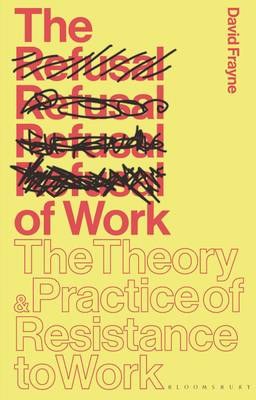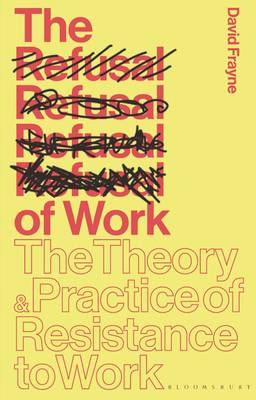
- Afhalen na 1 uur in een winkel met voorraad
- Gratis thuislevering in België vanaf € 30
- Ruim aanbod met 7 miljoen producten
- Afhalen na 1 uur in een winkel met voorraad
- Gratis thuislevering in België vanaf € 30
- Ruim aanbod met 7 miljoen producten
Zoeken
€ 47,45
+ 94 punten
Uitvoering
Omschrijving
Paid work is absolutely central to the culture and politics of capitalist societies, yet today's work-centred world is becoming increasingly hostile to the human need for autonomy, spontaneity and community. The grim reality of a society in which some are overworked, whilst others are condemned to intermittent work and unemployment, is progressively more difficult to tolerate.
In this thought-provoking book, David Frayne questions the central place of work in mainstream political visions of the future, laying bare the ways in which economic demands colonise our lives and priorities. Drawing on his original research into the lives of people who are actively resisting nine-to-five employment, Frayne asks what motivates these people to disconnect from work, whether or not their resistance is futile, and whether they might have the capacity to inspire an alternative form of development, based on a reduction and social redistribution of work.
A crucial dissection of the work-centred nature of modern society and emerging resistance to it, The Refusal of Work is a bold call for a more humane and sustainable vision of social progress.
In this thought-provoking book, David Frayne questions the central place of work in mainstream political visions of the future, laying bare the ways in which economic demands colonise our lives and priorities. Drawing on his original research into the lives of people who are actively resisting nine-to-five employment, Frayne asks what motivates these people to disconnect from work, whether or not their resistance is futile, and whether they might have the capacity to inspire an alternative form of development, based on a reduction and social redistribution of work.
A crucial dissection of the work-centred nature of modern society and emerging resistance to it, The Refusal of Work is a bold call for a more humane and sustainable vision of social progress.
Specificaties
Betrokkenen
- Auteur(s):
- Uitgeverij:
Inhoud
- Aantal bladzijden:
- 280
- Taal:
- Engels
Eigenschappen
- Productcode (EAN):
- 9781350354296
- Verschijningsdatum:
- 22/09/2022
- Uitvoering:
- Paperback
- Formaat:
- Trade paperback (VS)
- Afmetingen:
- 137 mm x 213 mm
- Gewicht:
- 476 g

Alleen bij Standaard Boekhandel
+ 94 punten op je klantenkaart van Standaard Boekhandel
Beoordelingen
We publiceren alleen reviews die voldoen aan de voorwaarden voor reviews. Bekijk onze voorwaarden voor reviews.











